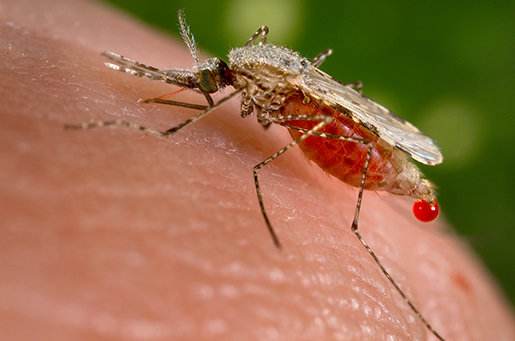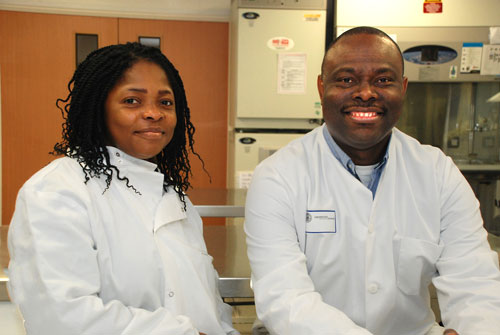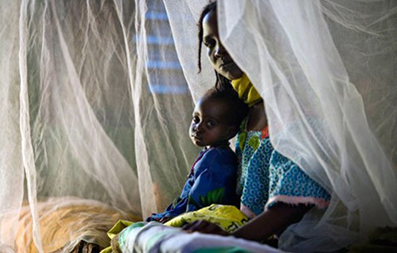Research underway to treat cerebral malaria with native plants

Fri, 04 Dec 2015 15:46:00 GMT
Cerebral malaria, which affects some 575,000 people annually – children in sub-Saharan Africa being most at risk
 ► Researcher Folashade Ogunrinade with her supervisor Dr Olumayokun Olajide
► Researcher Folashade Ogunrinade with her supervisor Dr Olumayokun Olajide
A DOCTORAL project that aims to combat some of the worst effects of malaria in Africa has earned researcher Folashade Ogunrinade valuable funding from a global foundation. The award also bolsters the University of Huddersfield’s burgeoning international reputation for pharmacology.
Folashade is from Nigeria, where she obtained BSc and MSc degrees at the University of Ibadan. Determined to move on to doctoral research, she read academic articles describing the work of her fellow Nigerian, Dr Olumayokun Olajide, who is based at the University of Huddersfield, investigating the potential of plant compounds in the fight against neuroinflammation.
 After she was accepted as a Huddersfield PhD student, supervised by Dr Olajide, Folashade then applied to the Schlumberger Foundation, a non-profit organisation that focuses on science education. It operates a programme named Faculty for the Future that offers fellowships to support women scientists and engineers from the developing world so that they can pursue postgraduate studies at leading universities worldwide.
After she was accepted as a Huddersfield PhD student, supervised by Dr Olajide, Folashade then applied to the Schlumberger Foundation, a non-profit organisation that focuses on science education. It operates a programme named Faculty for the Future that offers fellowships to support women scientists and engineers from the developing world so that they can pursue postgraduate studies at leading universities worldwide.
For the 2015-2016 academic year, Schlumberger has awarded new fellowships to 155 women – Folashade being one of them. Her tuition costs and living expenses are met by the award, which is renewed annually during her research, when she provides evidence of her academic progress.
 Her supervisor, Dr Olajide, is delighted not only by Folashade’s success but by the fact that the Foundation has acknowledged that the University of Huddersfield is a leader in the field.
Her supervisor, Dr Olajide, is delighted not only by Folashade’s success but by the fact that the Foundation has acknowledged that the University of Huddersfield is a leader in the field.
The main objective of Folashade’s research is to identify and isolate compounds in some common African plants so that they can be used for the treatment of cerebral malaria, which affects some 575,000 people annually – children in sub-Saharan Africa being most at risk.
“Other researchers have been looking at the actual parasite that causes malaria,” said Dr Olajide. “But we are looking specifically at how the parasite causes inflammation in the brain.”
The plants from which compounds are to be isolated are commonly found in Africa and could therefore be the basis for an accessible and economic treatment for cerebral malaria.
Folashade’s previous degrees – in physiology and pharmacology – were triggered by her interest in human biology. On arrival at the University of Huddersfield she has rapidly adapted to new lab techniques, focussing on cell cultures. Her long-term goal is to combine research with teaching at university level.







